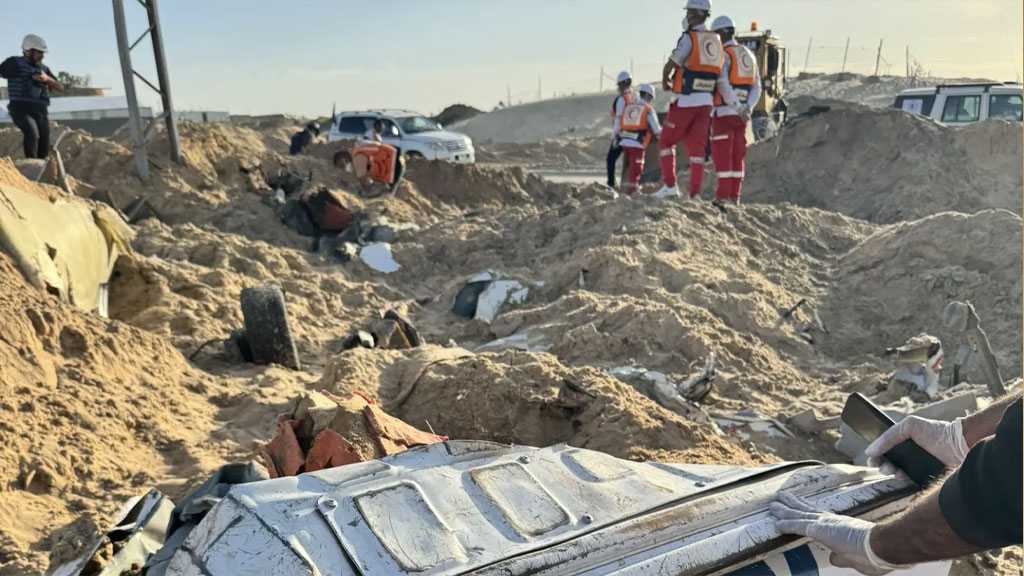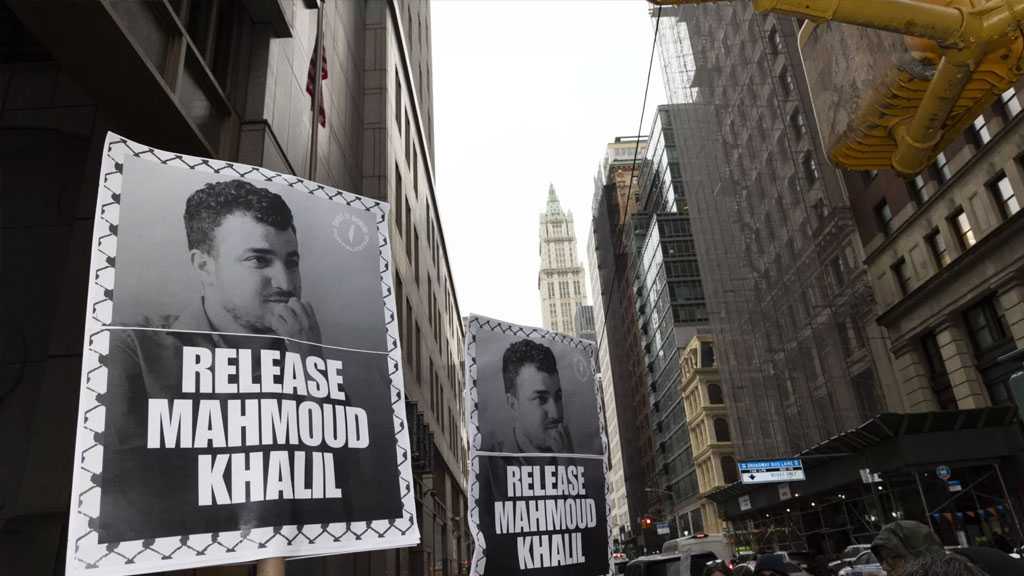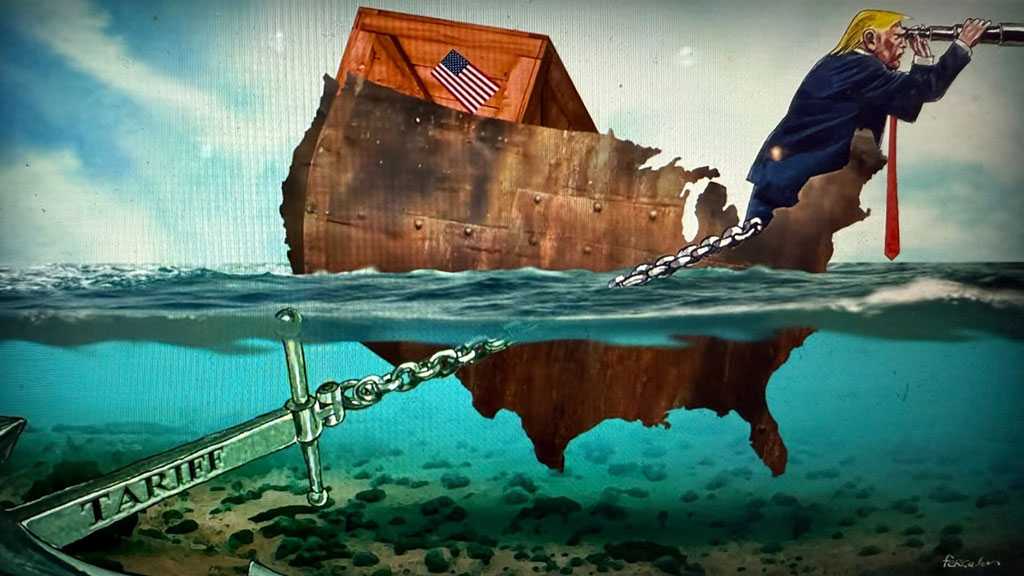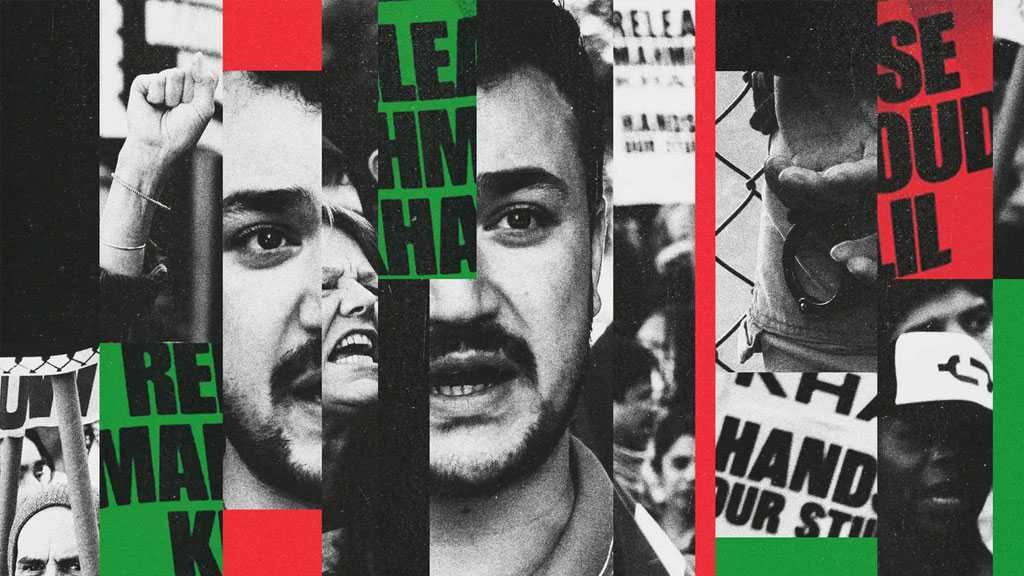Lebanon on the Edge...Again!

By Rayan El Amine
Leftturn, 1-12-2010
The pressure cooker that is Lebanon is once again about to boil over. This time the cause is imminent indictments by a UN-initiated Special Tribunal for Lebanon (STL), an international court tasked with investigating the assassination of the former Prime Minister Rafik Hariri.
The indictments are expected before the end of the year and all signs indicate that Hizbullah members will be named. This is what the US and its Lebanese and Arab allies are hoping for since it will help de-legitimize the popular Shiite resistance group in Lebanon. No one knows for sure how things will play out, but most of the scenarios do not bode well for Lebanon.
Lebanon has always been unstable, but it has been particularly unstable since the assassination of billionaire Prime Minister Hariri in 2005. The country was attacked viciously by "Israel" for thirty-three days in 2006, devastating most of the country and killing over a thousand civilians. There have been a series of political assassinations since, and in May 2008, a mini-civil war erupted that fell mainly along the lines of the Shiite- Sunni schism in the country.
Regional and Western powers, particularly the US, have always taken advantage of the instability and sectarian nature of Lebanon and used it as a battleground for achieving their interests not just in the country but in the Middle East as a whole. The STL is the latest tactic the US has employed to ensure that its interests and the interests of its closest ally in the Middle East, "Israel", are met.
Turbulent history
Anyone that has followed the turbulent history of the STL would be suspicious of the intentions and impartiality of the court. The court first went after Syria-which had fallen out of favor with the US and its Lebanese allies after Hariri's assassination-by ordering the detention of four high level generals in the Lebanese government that were close to Syria. After four years, the court backtracked and released the generals on lack of evidence and indicated that Syria was no longer under suspicion. This coincided with the US, Britain, and France needing help from Syria with bigger problems in the region like the war in Iraq, Iran and the Palestinian-"Israeli" peace process. These initial unsubstantiated accusations against Syria, which the current Prime Minister, Saad Hariri (Rafik Hariri's son), recently apologized for, tainted the court in the eyes of many Lebanese.
The court discredited itself further with a string of resignations, including by its lead prosecutor and other senior level staff. During the past year, many who had been interviewed initially have been exposed as false witnesses and their testimonies have had to be discarded. Furthermore it has been leaked that the main evidence against Hizbullah will come from cell phone communications, even though earlier this year a top executive of the main Lebanese cell phone company was arrested for spying for "Israel".
Hizbullah has also revealed "Israeli" drone surveillance footage it had intercepted (which Israel admitted was genuine) of Rafik Hariri's route from his house to parliament, including the area where the assassination took place. Yet "Israel" has never been questioned for its potential role. All this plus countless other inconsistencies and politically-driven decisions have put the legitimacy and the competence of the court into question, leading many to believe that the US is using the court for its own political purposes and not to find Hariri's killers.
By using the STL to go after Hizbullah, the US and "Israel" hope to accomplish three things: First and foremost they hope to harm the image of Hizbullah, which is popular even among Sunnis. Secondly, the US hopes to break the internal truce between the pro-US majority and the pro-Hizbullah opposition that make up Lebanon's national unity government because it has limited the US's influence. Thirdly, they want to be able to create a space for militant Salafi groups like Al-Qaida to operate directly against Hizbullah in Lebanon. All of these would go a long way towards making it more difficult for Hizbullah to resist any future attacks by "Israel".
In addition to using the STL, the US has also been funding internal opponents to Hizbullah in the past few years. Earlier this summer, Jeffrey Feltman, US Assistant Secretary of State for Near Eastern Affairs and former US Ambassador to Lebanon, reported to Congress that since 2006 the US had given a half-billion dollars, mostly through USAID, to local groups to undermine Hizbullah. The US has also sent military equipment and arms to the Internal Security forces under the control of the anti- Hizbullah block in the government.
Possible scenarios
A few scenarios are possible if the STL indicts Hizbullah members. One scenario is that the indictments will force Hizbullah and its allies to leave the unity government and create the kind of institutional paralysis Lebanon experienced in 2008 when Hizbullah and its allies left the government and disrupted the financial center of Beirut by setting up a tent city in its heart. Under such a scenario, the government would stop functioning and the country could become increasingly polarized along sectarian lines. This could lead to skirmishes, particularly in mixed Shiite-Sunni neighborhoods, and possibly civil war.
A second, similar scenario is that right before or after the indictments come out, militant Salafi Sunni groups who feel threatened by Hizbullah will start operating in the country in a similar way as they have in Iraq, planting bombs and attacking civilians, thus creating a bigger rift between Sunnis and Shiites and setting off a deadly cycle of sectarian violence.
The more likely and less explosive scenario, however, is that the indictments will be released but the current Hariri government will not recognize the findings and not make any arrests. Hariri will look like he is doing this for the good of the country and the US will still be able to smear Hizbullah as an international terrorist organization. This scenario is not acceptable to Hizbullah, since they believe that nothing less than the full rejection of the STL can preserve its reputation.
The last and best-case scenario is the rejection by the Lebanese government and Prime Minister Hariri himself of the court findings altogether before any indictments are released and the appointment of an internal Lebanese investigation in its place to look into the assassination. This will de-legitimize the STL, set up an impartial investigation, and avert a major crisis in Lebanon.
Next war
Meanwhile, "Israel" is continuing to prepare for the next war with daily fly-overs of drones into Lebanese airspace, a breach of UN Resolution 1701, which ended the 2006 war. The Lebanese government, with the help of Hizbullah, has uncovered over one hundred Israeli spies who were collecting logistical information on Hizbullah and targets for "Israel".
The UN has hardly mentioned, let alone acted on, any of these grave violations against Lebanese sovereignty, nor has it said anything about the US's continued arming of "Israel" in preparation for another offensive. The US recently approved the sale of twenty F-35 jets to "Israel". These are considered to be the most advanced fighter jets in the world. Their cost, which is in the billions, will be covered mostly by US aid to "Israel".
The US has been pushing for the STL's indictments no matter how illegitimate the court has become and how much damage it will do to Lebanon. After all, as US support for "Israel's" wars and occupations shows, Lebanon and the Lebanese people are expendable. During "Israel's" last war on Lebanon, the US delivered missiles to "Israel" to restock its reserves and delayed any diplomatic solution to give "Israel" more time to bomb.
The US's reliance on international institutions like the STL shows that it is much weaker in the Middle East than it was a decade ago when it would have used its own or "Israel's" military power to achieve its aims. "Israel's" inability to take Hizbullah out in the 2006 war and its mass base of support in Lebanon have made the military option one of last resort.
Hopefully the Lebanese have learned something from their own history of civil strife and will not fall into the trap being set for them.
Leftturn, 1-12-2010
The pressure cooker that is Lebanon is once again about to boil over. This time the cause is imminent indictments by a UN-initiated Special Tribunal for Lebanon (STL), an international court tasked with investigating the assassination of the former Prime Minister Rafik Hariri.
The indictments are expected before the end of the year and all signs indicate that Hizbullah members will be named. This is what the US and its Lebanese and Arab allies are hoping for since it will help de-legitimize the popular Shiite resistance group in Lebanon. No one knows for sure how things will play out, but most of the scenarios do not bode well for Lebanon.
Lebanon has always been unstable, but it has been particularly unstable since the assassination of billionaire Prime Minister Hariri in 2005. The country was attacked viciously by "Israel" for thirty-three days in 2006, devastating most of the country and killing over a thousand civilians. There have been a series of political assassinations since, and in May 2008, a mini-civil war erupted that fell mainly along the lines of the Shiite- Sunni schism in the country.
Regional and Western powers, particularly the US, have always taken advantage of the instability and sectarian nature of Lebanon and used it as a battleground for achieving their interests not just in the country but in the Middle East as a whole. The STL is the latest tactic the US has employed to ensure that its interests and the interests of its closest ally in the Middle East, "Israel", are met.
Turbulent history
Anyone that has followed the turbulent history of the STL would be suspicious of the intentions and impartiality of the court. The court first went after Syria-which had fallen out of favor with the US and its Lebanese allies after Hariri's assassination-by ordering the detention of four high level generals in the Lebanese government that were close to Syria. After four years, the court backtracked and released the generals on lack of evidence and indicated that Syria was no longer under suspicion. This coincided with the US, Britain, and France needing help from Syria with bigger problems in the region like the war in Iraq, Iran and the Palestinian-"Israeli" peace process. These initial unsubstantiated accusations against Syria, which the current Prime Minister, Saad Hariri (Rafik Hariri's son), recently apologized for, tainted the court in the eyes of many Lebanese.
The court discredited itself further with a string of resignations, including by its lead prosecutor and other senior level staff. During the past year, many who had been interviewed initially have been exposed as false witnesses and their testimonies have had to be discarded. Furthermore it has been leaked that the main evidence against Hizbullah will come from cell phone communications, even though earlier this year a top executive of the main Lebanese cell phone company was arrested for spying for "Israel".
Hizbullah has also revealed "Israeli" drone surveillance footage it had intercepted (which Israel admitted was genuine) of Rafik Hariri's route from his house to parliament, including the area where the assassination took place. Yet "Israel" has never been questioned for its potential role. All this plus countless other inconsistencies and politically-driven decisions have put the legitimacy and the competence of the court into question, leading many to believe that the US is using the court for its own political purposes and not to find Hariri's killers.
By using the STL to go after Hizbullah, the US and "Israel" hope to accomplish three things: First and foremost they hope to harm the image of Hizbullah, which is popular even among Sunnis. Secondly, the US hopes to break the internal truce between the pro-US majority and the pro-Hizbullah opposition that make up Lebanon's national unity government because it has limited the US's influence. Thirdly, they want to be able to create a space for militant Salafi groups like Al-Qaida to operate directly against Hizbullah in Lebanon. All of these would go a long way towards making it more difficult for Hizbullah to resist any future attacks by "Israel".
In addition to using the STL, the US has also been funding internal opponents to Hizbullah in the past few years. Earlier this summer, Jeffrey Feltman, US Assistant Secretary of State for Near Eastern Affairs and former US Ambassador to Lebanon, reported to Congress that since 2006 the US had given a half-billion dollars, mostly through USAID, to local groups to undermine Hizbullah. The US has also sent military equipment and arms to the Internal Security forces under the control of the anti- Hizbullah block in the government.
Possible scenarios
A few scenarios are possible if the STL indicts Hizbullah members. One scenario is that the indictments will force Hizbullah and its allies to leave the unity government and create the kind of institutional paralysis Lebanon experienced in 2008 when Hizbullah and its allies left the government and disrupted the financial center of Beirut by setting up a tent city in its heart. Under such a scenario, the government would stop functioning and the country could become increasingly polarized along sectarian lines. This could lead to skirmishes, particularly in mixed Shiite-Sunni neighborhoods, and possibly civil war.
A second, similar scenario is that right before or after the indictments come out, militant Salafi Sunni groups who feel threatened by Hizbullah will start operating in the country in a similar way as they have in Iraq, planting bombs and attacking civilians, thus creating a bigger rift between Sunnis and Shiites and setting off a deadly cycle of sectarian violence.
The more likely and less explosive scenario, however, is that the indictments will be released but the current Hariri government will not recognize the findings and not make any arrests. Hariri will look like he is doing this for the good of the country and the US will still be able to smear Hizbullah as an international terrorist organization. This scenario is not acceptable to Hizbullah, since they believe that nothing less than the full rejection of the STL can preserve its reputation.
The last and best-case scenario is the rejection by the Lebanese government and Prime Minister Hariri himself of the court findings altogether before any indictments are released and the appointment of an internal Lebanese investigation in its place to look into the assassination. This will de-legitimize the STL, set up an impartial investigation, and avert a major crisis in Lebanon.
Next war
Meanwhile, "Israel" is continuing to prepare for the next war with daily fly-overs of drones into Lebanese airspace, a breach of UN Resolution 1701, which ended the 2006 war. The Lebanese government, with the help of Hizbullah, has uncovered over one hundred Israeli spies who were collecting logistical information on Hizbullah and targets for "Israel".
The UN has hardly mentioned, let alone acted on, any of these grave violations against Lebanese sovereignty, nor has it said anything about the US's continued arming of "Israel" in preparation for another offensive. The US recently approved the sale of twenty F-35 jets to "Israel". These are considered to be the most advanced fighter jets in the world. Their cost, which is in the billions, will be covered mostly by US aid to "Israel".
The US has been pushing for the STL's indictments no matter how illegitimate the court has become and how much damage it will do to Lebanon. After all, as US support for "Israel's" wars and occupations shows, Lebanon and the Lebanese people are expendable. During "Israel's" last war on Lebanon, the US delivered missiles to "Israel" to restock its reserves and delayed any diplomatic solution to give "Israel" more time to bomb.
The US's reliance on international institutions like the STL shows that it is much weaker in the Middle East than it was a decade ago when it would have used its own or "Israel's" military power to achieve its aims. "Israel's" inability to take Hizbullah out in the 2006 war and its mass base of support in Lebanon have made the military option one of last resort.
Hopefully the Lebanese have learned something from their own history of civil strife and will not fall into the trap being set for them.




